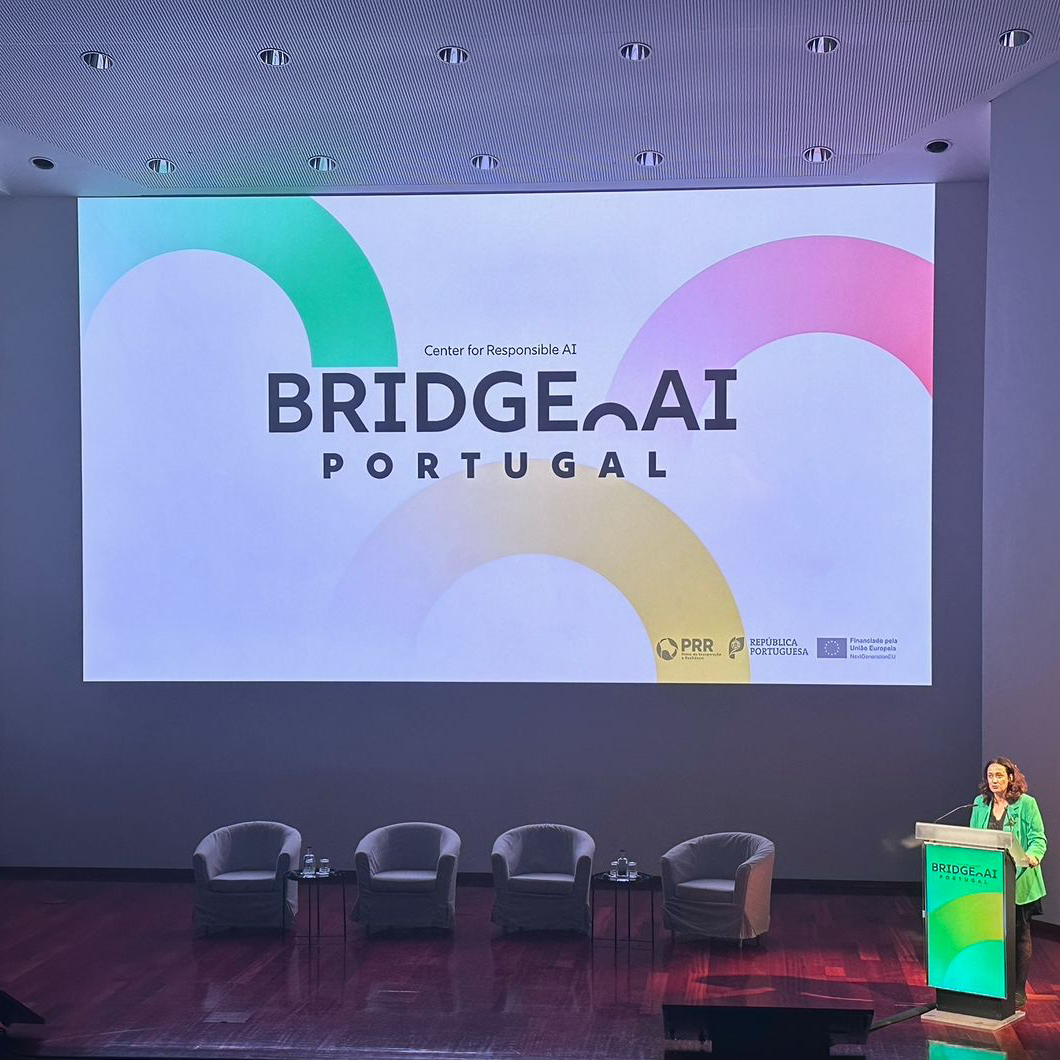The short video’s title is “My word” and it was generated by an artificial intelligence (AI) software that creates images from written text. Directed by Carmen Puche Morè, it warns viewers, right at the start, that the software “mirrors the biases and (mis)conceptions present in the data used to train it”.
And then she demonstrates: “I am a doctor”: the synthetic images show the face of a young, white man. “I am a woman”: the man morphs into a young white woman. “I am not white”: his skin colour changes. “I am not young”: wrinkles appear on the face, facial features become less defined, hair colour changes to white.
The biases contained in the data used to train AI algorithms present gross ethical problems. “ChatGPT [the best-known text generation software] essentially represents the point of view of the Western world”, would later say in his talk Pedro Conceição, Director of the Human Development Report Office of the United Nations Development Programme (UNDP).
This perfect illustration of our own biases – if we had to imagine what a person looked like from their spoken description, we'd very likely react like the software – was the opening piece of the first conference of the Bridge AI Group, which took place last weekend at the Champalimaud Foundation in Lisbon. The ethical considerations surrounding AI were obviously one of the issues addressed during this meeting.
Bridge AI is a project coordinated by the Institute of Systems and Computer Engineering – Research and Development (Inesc-ID), in collaboration with the Champalimaud Foundation and Unbabel, a Portuguese company that has developed a translation platform using AI. The project was conceived by three young science managers – António Novais and Nuno André, from Unbabel, and Joana Lamego, from the Champalimaud Foundation. It is coordinated by Helena Moniz, from INESC-ID.
The aim is to put Portugal at the forefront of implementing the European AI Act, a text recently approved by the European Parliament, while showing that this law is compatible with technological innovation.
The AI ACT is the first comprehensive regulation on AI in the world. Not only companies that provide AI, but also those that use it, will be subject to this regulation.
Admittedly, AI is already partly regulated by general law – a crime, when committed with AI, will still be a crime. But a specific AI law is needed, because this is the first time that the behaviour of something that is not human is being regulated.
Biases in healthcare abound, the amount of energy needed to train large language models is huge, there has been an increase in plagiarism and copyright infringement, and the creation of deepfakes (realistic images built from scratch by computers) keep spreading disinformation and fake news by taking advantage of people's lack of “AI literacy”. AI can be a fantastic tool when used for the benefit of people and society in general, but it can also exacerbate serious, very human problems.
“The text of the AI Act is very difficult to understand and needs skilled lawyers” to decipher it, said Leonor Beleza, President of the Champalimaud Foundation. “The aim of Bridge AI is to help understand the AI Act in the Portuguese context.”
As for the main objectives of this first event, they were, explicitly, “to discuss the opportunities and risks of AI for innovation, to analyse ethical considerations in the regulation of AI and to define strategies for increasing AI literacy in Portugal”, according to a press release. The conference brought together policy-makers, national and international experts, academics, lawyers, psychologists, etc. in a series of debates and talks.
Throughout the afternoon, five multidisciplinary working groups convened by Bridge AI presented their preliminary recommendations in five areas of interest: “Ethical risk assessment tools”, “AI ethics in regulatory processes”, “Implementation of the AI ACT”, “Advanced Training and AI Literacy” and “Initiatives outside the European Union”.
The experts' recommendations included: the creation of an AI risk assessment tool, including for ethical risks, that is concrete and accessible to anyone who creates or uses AI; the creation of AI “red teams” – groups of experts, internal or external to organisations, capable of testing the safety of AI systems and in particular their ability to protect user data; the implementation of a national survey on AI literacy; and the creation of “technology free zones” – spaces where it is possible to test AI technologies.
Everyone agreed that AI, as well as being “good for business”, can and should be useful and beneficial for people – and always have human beings at the controls. In fact, as if to reassure those who think they will lose their jobs and be replaced by AI, Pedro Conceição, from UNDP, asked the audience: “Do you know what is the only occupation that disappeared due to technological changes? Lift operator. All the others still exist but have been transformed. Whether to use humans or machines is our choice.”
Text by Ana Gerschenfeld, Health & Science Writer of the Champalimaud Foundation.

